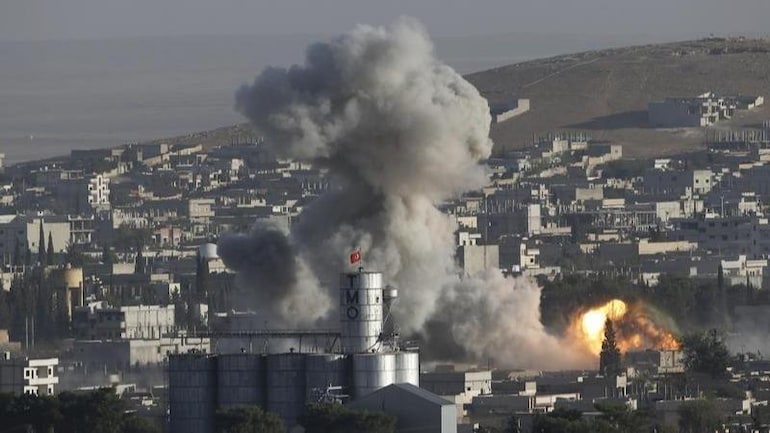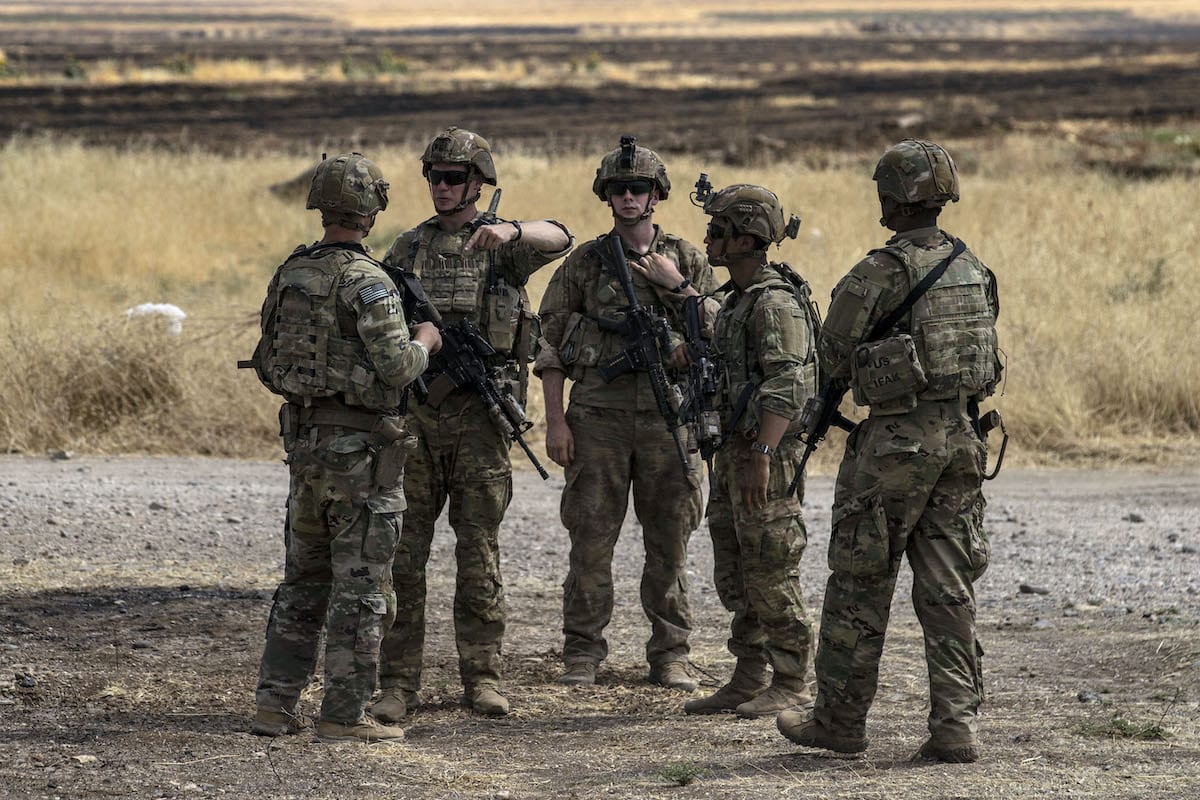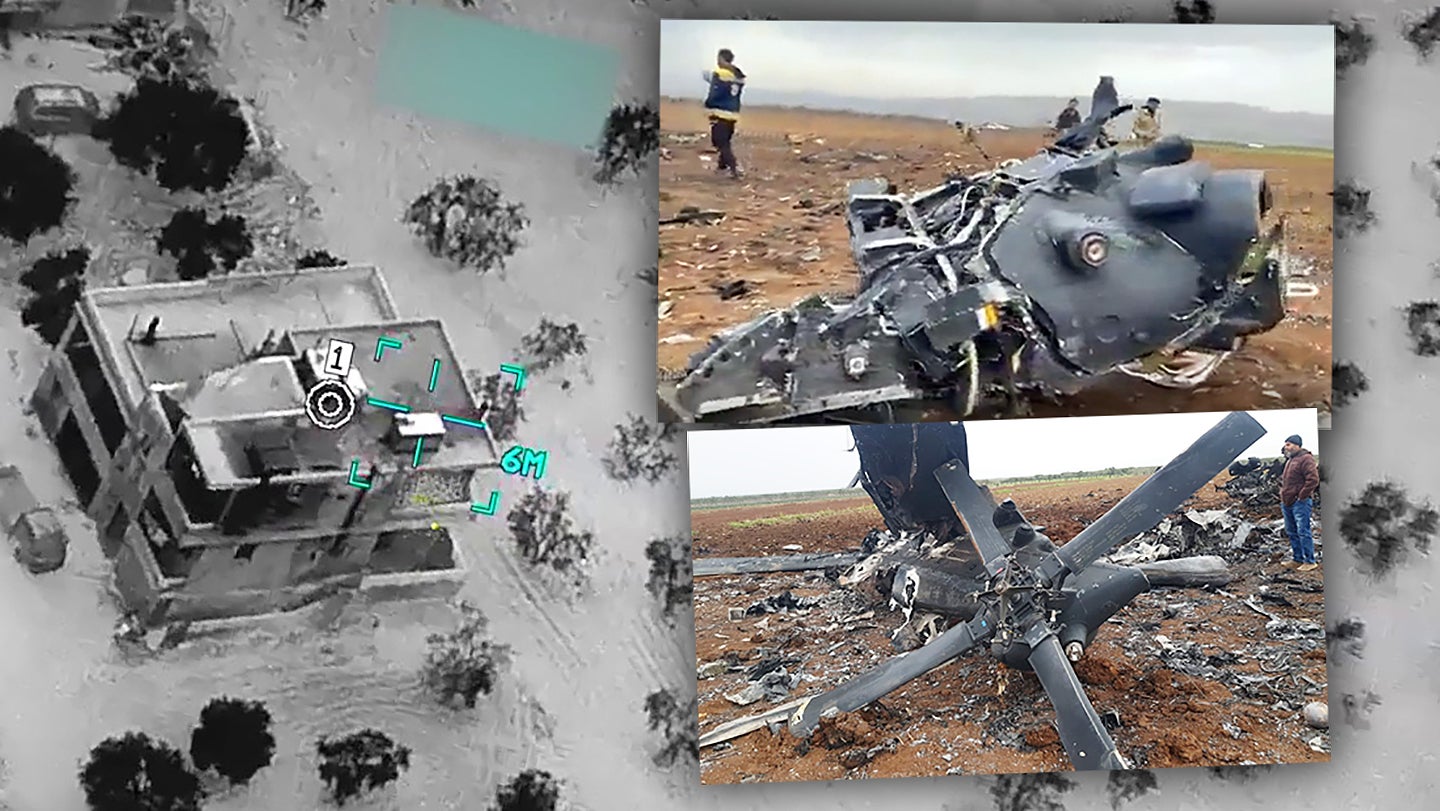...with regime change in the US,
War is back on menu,bois!
36 days after becoming US President, Joe Biden bombs Syria
The United States launched airstrikes in Syria on Thursday, targeting facilities near the Iraqi border used by Iranian-backed militia groups. The Pentagon said the strikes were retaliation for a rocket attack in Iraq earlier this month that killed one civilian contractor and wounded a US service member and other coalition troops.

ReutersReutersFebruary 26, 2021UPDATED: February 26, 2021 10:52 IST
(Reuters file photo for representation)
US President Joe Biden on Thursday directed US military airstrikes in eastern Syria against facilities belonging to what the Pentagon said were Iran-backed militia, in a calibrated response to rocket attacks against U.S. targets in Iraq.
The strikes, which were first reported by Reuters, appeared to be limited in scope, potentially lowering the risk of escalation.
Biden's decision to strike only in Syria and not in Iraq, at least for now, also gives the Iraqi government some breathing room as it carries out its own investigation of a Feb. 15 attack that wounded Americans.
"At President (Joe) Biden’s direction, U.S. military forces earlier this evening conducted airstrikes against infrastructure utilized by Iranian-backed militant groups in eastern Syria," Pentagon spokesman John Kirby said in a statement.
"President Biden will act to protect American and Coalition personnel. At the same time, we have acted in a deliberate manner that aims to de-escalate the overall situation in both eastern Syria and Iraq," Kirby said.
He added that the strikes destroyed multiple facilities at a border control point used by a number of Iranian-backed militant groups, including Kata'ib Hezbollah (KH) and Kata'ib Sayyid al-Shuhada (KSS).
Read: Air strike killed 7 Al-Qaeda leaders in Syria: US
A U.S. official, speaking on condition of anonymity, said the decision to carry out the strikes was meant to send a signal that while the United States wanted to punish the militias, it did not want the situation to spiral into a bigger conflict.
The official added that Biden was presented with a range of options and one of the most limited responses was chosen.
It was not immediately clear what damage was caused and if there were any casualties from the U.S. strike.
'NECESSARY DETERRENT'
Representative Michael McCaul, the top Republican on the House Foreign Affairs Committee, said the strikes were the right move.
"Responses like this are a necessary deterrent and remind Iran, its proxies, and our adversaries around the world that attacks on U.S. interests will not be tolerated," McCaul said.
Suzanne Maloney, of the Brookings Institution think tank, said the strikes showed the Biden administration could negotiate with Iran on the nuclear deal while pushing back against the militias it backed.
"Good move by... Biden (administration) demonstrating US can walk and chew gum at the same time," she said on Twitter.
Read: Air strike in northwest Syria camp kills 50 rebel fighters
The rocket attacks on U.S. positions in Iraq were carried out as Washington and Tehran are looking for a way to return to the 2015 nuclear deal abandoned by former U.S. President Donald Trump.
It was not clear how, or whether, the strike might affect U.S. efforts to coax Iran back into a negotiation about both sides resuming compliance with the agreement.
In the Feb. 15 attack, rockets hit the U.S. military base housed at Erbil International Airport in the Kurdish-run region, killing one non-American contractor and injuring a number of American contractors and a U.S. service member.
Another salvo struck a base hosting U.S. forces north of Baghdad days later, hurting at least one contractor.
Rockets hit Baghdad’s Green Zone on Monday, which houses the U.S. Embassy and other diplomatic missions.
Earlier this week, the Kata'ib Hezbollah group, one of the main Iran-aligned Iraqi militia groups, denied any role in the rocket attacks.
Some Western and Iraqi officials say the attacks, often claimed by little-known groups, are being carried out by militants with links to Kata'ib Hezbollah as a way for Iranian allies to harass U.S. forces without being held accountable.
Since late 2019, the United States has carried out high-profile strikes against the Kata'ib Hezbollah militia group in Iraq and Syria in response to sometimes deadly rocket attacks against U.S.-led forces.
Under the Trump administration, the escalatory back-and-forth stoked tensions, culminating in the U.S. killing of Iranian military leader Qassem Soleimani and a retaliatory Iranian ballistic missile attack against U.S. forces in Iraq last year.









